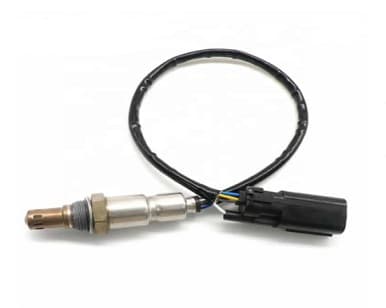Vehicle Emission Sensors – For A Sustainable Future

The global vehicle emission sensor market is projected to grow at a CAGR of 2.01% during the forecast period to reach US$4.496 billion by 2027, from US$3.911 billion in 2020.
The vehicle's emissions produce air pollution and an increase in greenhouse gases, raising health and environmental issues. It has resulted in technological development to minimize automobile emissions. As a result, vehicle emission sensors have been introduced. It is installed in the exhaust pipe and detects and monitors the concentration of exhaust gas released by automotive internal combustion engines. Nitric oxide sensors, oxygen sensors, and others are the two categories of car emission sensors based on the type of exhaust gases they detect and monitor.
Explore the Vehicle Emission Sensor Market
This overview provides key insights. Dive into our comprehensive report for detailed market size, growth forecasts, and competitive analysis to navigate the global vehicle emission sensor industry.- ? Market Trends & Growth Projections
- ? Key Player Strategies & Market Share
- ? Sensor Type and Regional Insights
Two of the major key causes boosting the need for automotive sensors are autonomous driving and the rise of EV sales. Most automotive sensor markets are expanding with the general expansion of the automotive market. The widespread use of AD and ADAS systems is the primary driver of increased demand for vehicle sensors. Furthermore, according to The International Organization of Motor Vehicle Manufacturers, Asia Pacific generated around 4,67,32,785 units in 2021, a 4% increase over 2020. China and India held prominent roles in the Asia Pacific region. Therefore, due to the rise in the use of electric cars, the vehicle emission sensor market is anticipated to witness a surge.
The global vehicle emission sensor market is dominated by multiple major players, including DEPUSA, TE Connectivity, Sensors, Inc., Littelfuse, Inc., DENSO, Continental AG, Delphi Auto Parts, BBT Automotive Components GmbH, ACDelco, NGK Spark Plugs.
Detroit Engineered Products (DEPUSA) is a corporation established in the United States that specializes in engine design and development for automotive, aerospace and defense, healthcare, marine, railways, heavy engineering, oil and gas, power, and utility industries. The company’s primary focus is on producing strong solutions that assure durability, adaptability, efficiency, and a solid ROI. The firm provides engineering help to Tier 1 and 2 suppliers, OEMs, and other companies in the automobile sector. In 2019, it introduced an improved IC sensor that could assist enhance internal combustion engine efficiency and cutting emissions. These integrated circuit sensors may be utilized in emissions, combustion, and pressure sensors, as well as real-time applications, offering precise and dependable data. They are best suited for onboard engine diagnostics and can be simply retrofitted into current electronically controlled gasoline and diesel engines by adapting the spark plug, fuel injector, or glow plug as the sensor. Both in software and hardware the product is applicable.
Sensors, Inc. is a company located in the United States that was established in 1969 to market infrared emissions monitoring technology. The business took the lead in introducing Portable Emissions Measurement Systems, which enabled on-road emission testing programs across the world. Government regulatory agencies and colleges, as well as engine and vehicle manufacturers in Asia, Europe, and the United States, utilize the company's emissions measuring systems to monitor emissions such as CO2, NO2, N2O, CO, and others. Sensors' SEMTECH product range is simple to use and install, and it provides quick and accurate results. These are emission sensors for automobiles. For instance, the SEMTECH DS+ PEMS produces real-world emissions testing for light-duty cars, whereas the SEMTECH DS+ PEMS is designed for heavy-duty testing. Furthermore, sensors' test cell product line offers reliable measurement of emissions, number and mass, and other parameters. SEMTECH FEM, on the other hand, provides the most precise real-world fuel efficiency metrics.
Continental AG, headquartered in Germany, is a pioneer in technology and sustainability services. It was created in 1871, and in 2020, it published a webpage offering relevant information on the current CO2 emissions rule for heavy goods vehicles, as well as a simulation tool for trucks called the Vehicle Energy Consumption Calculation Tool. The company began developing the NOx sensor system, which plays a critical role in decreasing nitrogen oxide emissions from contemporary diesel and gasoline engines, 20 years ago. In conjunction with SCR emissions control, the Continental sensor is used in both automobiles and light and heavy-duty commercial vehicles. It is made up of a ceramic NOx sensor that is linked to a microprocessor. It enables optimum control of all the fundamental parameters of the automotive. Continental is the leading manufacturer of this NOx sensing system and commercial vehicle manufacturers in Asia, Europe, and the U.S.
Understand the Electric Vehicle Components Market
Emission sensors are crucial for EV efficiency. Explore our detailed report on the Electric Vehicle Components Market for insights into market trends and technological advancements.Global Vehicle Emission Sensor Market Scope:
| Report Metric | Details |
| Market Size Value in 2020 | US$3.911 billion |
| Market Size Value in 2027 | US$4.496 billion |
| Growth Rate | CAGR of 2.01% from 2020 to 2027 |
| Base Year | 2020 |
| Forecast Period | 2022–2027 |
| Forecast Unit (Value) | USD Billion |
| Segments Covered | Sensor Type, Vehicle Type, And Geography |
| Regions Covered | North America, South America, Europe, Middle East and Africa, Asia Pacific |
| Companies Covered | DEPUSA, TE Connectivity, Sensors, Inc., Littlefuse, Inc., DENSO CORPORATION, Continental AG, BorgWarner Inc., BBT Automotive Components GmbH, ACDelco, NGK Spark Plug Co., Ltd. |
| Customization Scope | Free report customization with purchase |
Go from Insight to Action with Our Market Research
You've seen the overview. Now, get the detailed data and strategic analysis you need to stay ahead in the automotive sensor market. Explore our related, in-depth reports. Each report includes comprehensive data, forecasts, and competitive analysis to empower your business decisions.Get in Touch
Interested in this topic? Contact our analysts for more details.
Latest Thought Articles

Top OSAT Companies Driving Semiconductor Assembly and Test Services Worldwide
Recently
EV Charging Stations Market Outlook: Smart Charging, Fast Charging, and Regional Expansion
Recently
Future of Corporate Wellness: Global Trends and Regional Outlook
Recently
Regional Breakdown of the Mechanical Keyboard Market: Who Leads and Why?
Recently